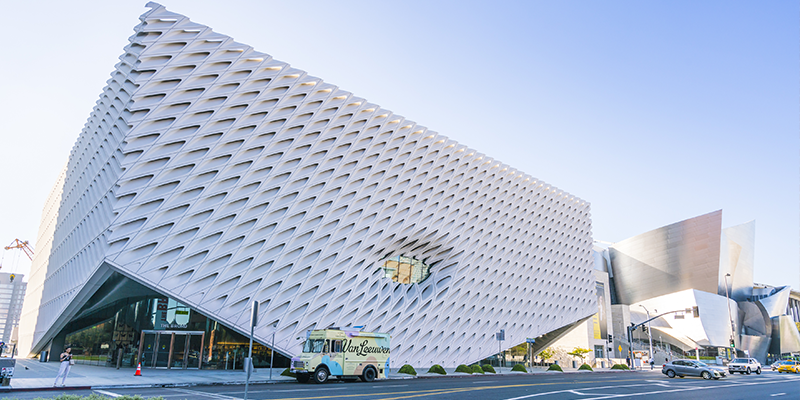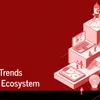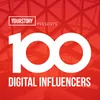Launched in 2012, YourStory's Book Review section features over 285 titles on creativity, innovation, entrepreneurship, and digital transformation. See also our related columns The Turning Point, Techie Tuesdays, and Storybites.
The Startup Guide series of books, launched in 2014 by Copenhagen-based publisher Sissel Hansen, covers over 30 cities such as London, Lisbon, Oslo, Luxembourg, and Miami. See our reviews of the guidebooks for New York, Berlin, Munich, Zurich, Paris, Amsterdam, Barcelona, Stockholm, Vienna, Johannesburg, Cairo, Tokyo, Bangkok, and Singapore.
Startup Guide Los Angeles is spread across 200 pages and makes for an informative and entertaining read, with profiles of founders, co-working spaces, incubators, and other ecosystem players.
The rise of LA
“Long known as the world’s epicenter for arts and entertainment, Los Angeles is proving to be much more than that. In the past decade, LA has been nurturing a crop of creatives and entrepreneurs across industries who are keen on founding the businesses of tomorrow,” Sissel Hansen begins.
LA is regarded as one of the top 10 startup ecosystems in the world. Notable startups from LA include Snap, Tinder, Hulu, SpaceX, Dollar Shave Club, Oculus, Beats (by Dre), Bird, and Beyond Meat.
LA is a “global crossroads of culture and commerce,” according to Eric Garcetti, Mayor of LA. It has the third-largest metropolitan economy in the world, the busiest port in the Western Hemisphere, and the fifth-busiest airport in the world.
World-class universities like CalTech, UCLA, and USC add to a diverse talent pool. LA’s media giants are global cultural influencers, and the city is also a hub for Latin American business.
“LA is one of the world’s leading centers for storytelling arts,” says Ben Christensen, the global lead for the SAP Next-Gen science-fiction thinking community.
Over the years, LA has become a hub for startups not just in media, gaming, adtech and life-sciences, but also food, agritech, mobility, aerospace, medical devices, advanced manufacturing, industry 4.0, biotech, new materials, and cleantech.

Overview
One section provides an overview of the city’s culture and lifestyle, such as people (friendly and accepting), public transportation (inadequate), housing (not cheap), and health insurance (expensive).
The population of the Greater Los Angeles Area is 18 million, with foreigners constituting around 40 percent. The city has around 5,000 tech companies and has the third largest GDP in the world. LA has over 200 museums, 10,000 restaurants, and hundreds of movie theaters; around 400-500 movies are released each year.
The city ranks high in terms of number of spiritualists, health gurus, and vegans. PETA rated LA as the No.1 vegan-friendly city in the US in 2018.
There are plentiful co-living spaces (such as PodShare, Starcity, and Outsite) and diverse cultural neighbourhoods such as Silverlake and Echo Park (for arts, craft beer and artisanal coffee). Legal Zoom, Start Up Nation, and My Own Business help entrepreneurs start businesses; Momentus or Network After Work help with founder meetups.

I. Startup profiles
One section of the book profiles eight startups based in LA, with inspiring origin stories and business descriptions. They include NEXT Trucking (connecting shippers with carriers), Relativity Space (3D printing in rocket-manufacturing), Wondery (immersive storytelling podcasts), and AppliedVR (digital health platform with therapeutic virtual reality).
Duuple is a charitable giving app that empowers individuals, brands and NGOs to create their own goal-based challenges. It regards the ice bucket challenge as an inspiring and viral way to spread fundraising efforts.
Earny is a consumer-advocacy brand that helps consumers get money back when listed prices of purchased products drop. Fair provides payment plans for car owners by scanning their license and accessing credit history.
The Female Quotient advances equality in the workplace through collaboration and accountability measures. Its offerings include FQ Practice (consulting), FQ purpose (philanthropy) and FQ Lounge (popup space for conference networking for women).
Many of the founders benefited from the initiatives and programmes like the Techstars Cedars-Sinai Healthcare Accelerator, Y Combinator, and Stevie Awards for women in business.

II. Startup ecosystem
One section of the book profiles the support system for startups, ranging from incubators to accelerators. For example, Bixel Exchange runs the Startup Launch programme for emerging startups and the Tech Talent Pipeline Program for underprivileged high school and college students.
SAP Next-Gen supports startups aligned to the seventeen UN Sustainable Development Goals (SDGs). Grid110 provides co-working spaces and runs accelerator and incubator initiatives such as the Residency Program and Idea to Prototype programme.
Make in LA (MiLA), the accelerator programme of VC firm MiLA Capital, targets hardware startups. It is housed within the innovation lab Toolbox LA, which has maker spaces and a biotech lab. Portfolio startups include Amped Innovation, which designs renewable energy products.
MuckerLab runs a mentor network and accelerator programme. Its startups include ServiceTitan (software for trade-industry services) and Black Tux (tuxedo rentals). Starburst is an innovation catalyst and aerospace accelerator, with branches in LA, San Francisco, Montreal, Paris, Munich, Abu Dhabi, and Singapore.
Techstars LA is part of the Techstars accelerator network founded in Boulder, Colorado. Its startups include Fernish (furniture subscription) and Slingshot Aerospace (satellite-data platform).
The Women Founders Network aims to increase venture capital in women-founded companies. It runs the yearly Fast Pitch competition, with prize money and professional services grants.
Managers of these institutes offer a range of tips for founders, ranging from mindset to market share. Founders should have curiosity, passion, intellectual honesty, grit, and resilience; a sense of humour helps deal with hardships as well.
They should demonstrate coachability and articulation, and be able to explain Why me and Why now. They should show commitment to solving a problem and bring together a strong team to move their idea to commercial validation and scalability.

III. Co-working spaces
Los Angeles has a number of co-working spaces, some of which specialise in certain sectors and communities. They include CTRL Collective, which hosts a makerspace and art studio.
La Kretz Innovation Campus, a former furniture manufacturing plant, is now converted into a co-working space. It is run by the Los Angeles Cleantech Incubator (LACI).
Maker City LA is a workspace for the entertainment-production and apparel industries, as well as non-profits and startups. Phase Two targets startups in the tech, media and entertainment industries.
The Riveter, founded by Amy Nelson, describes itself as “built by women, for everyone.” Heather Carter, its MD, was the founding operator of Soothe (massages on demand), operations director at Heal (doctors to your door), and COO of Helpr (employer-sponsored childcare company).
Toolbox LA targets hardware startups, and provides a biotech lab and makerspace. It runs the accelerator program MiLA (Make in LA).

IV. Expert insights
One section of the book provides tips from six experts, covering market expansion, industry connects, talent, and legal issues.
“You can outsource almost anything operational until you’re ready to scale, and it’s okay to not have all that figured out in the beginning,” explains Yvette Bellamy, Operations Director, BCG Digital Ventures. “You don’t need a cofounder for the sake of it,” she adds.
BCG Digital Ventures is a corporate investment and incubation firm, with a string of centres (in Berlin, London, New York, Sydney, Shanghai and Tokyo) and labs (in Silicon Valley and Seattle). Portfolio startups include Regi (booking platform for beauty treatments, built alongside pharmaceutical company Allergan) and HeyCar (used cars platform, launched in partnership with Volkswagen Financial Services).
Founders should seek legal counsel early on to avoid expensive pitfalls, and have an intellectual-property strategy in place from day one, according to Richard Friedman, Counsel at law firm DLA Piper’s Emerging Growth and Venture Capital practice. Founders should have clarity on issuing equity, communicating about ownership arrangements, and the economics of convertibles notes.
“Ensure that your finances are in tip-top shape when preparing for a funding round. In later stage investment rounds like Series A, B or C, it’s crucial to have financial controls and proper systems,” advises Kory Chapelle, LA Market Manager at Early Growth Financial Services (EGFS).
Los Angeles is a new home for the “science-fiction mindset and Innovation 4.0,” according to Ann Rosenberg, SVP for UN Partnerships at SAP and Global Head of SAP Next-Gen. Winning is about having “a lasting impact on the future and working toward the SDGs,” she adds.
“Keep your startup lean at the beginning of your journey. Conserve your resources. Hire a dream team of people who believe in the product or service you’re offering and complement each other with their skills,” Ann advises.

V. Founder advice
The book features interviews with founders of five startups. The profiled founders trace their entrepreneurial journeys, lessons learnt, and tips for the next wave of aspiring entrepreneurs.
“Find those people who are smarter than you in the domain that you want to work with them. Empower them,” advises Brent Bushnell, CEO of Two Bit Circus. The experiential entertainment company runs a micro-amusement park in downtown LA with VR games and escape rooms.
He urges founders to have an early bias towards action. “How can you get a test going this weekend? With that test, you’ll learn a lot,” he advises.
“You should never compromise who you are personally to become who you wish to be professionally,” says Janice Bryant Howroyd, Founder and CEO, The ActOne Group. She is also author of Acting Up: Winning in Business and Life Using Down-Home Wisdom.
The ActOne Group provides employment, workforce management, and procurement solutions for a wide range of companies and government agencies. It is the largest woman- and minority-owned, privately held workforce management firm in the US.
“Don’t ask other people for validation on your idea. Dive in and start building it yourself,” advises Nanxi Liu, Co-founder and CEO of Enplug. Its digital-signage software enables companies to manage and distribute custom content on screens for marketing.
Nanxi is also a concert pianist and an advocate for STEM education for young women. “Every founder’s rite of passage includes building a failed dating app, so of course, I too created a failed dating app,” she jokes. She finds it inspiring when talented people forgo high-paying, stable jobs to join founders in their long journeys.
“Visioning is really important. It could be a journal, it could be a Pinterest board, but map out what the two-, five- and ten-year mark looks like to your business and looks like for you,” advises Natasha Case, CEO and Co-founder of Coolhaus, a leading women-owned ice cream brand.
It started off as a humble food-truck operation and now has outlets and a grocery business nationwide. Natasha jokes that she began experimenting with “food meets design” and was calling it “farchitecture.”
“You have to be proximate to the problem to understand the pain point your customers are feeling,” advises Shivani Siroya, Founder and CEO of Tala, a consumer-lending app in emerging markets. She struck upon the idea of credit services during her work at the UN Population Fund in Africa.
“You may adjust that solution multiple times, but you’re on the path to it because you’ve at least been able to internalise what you’re solving for,” Shivani adds. Her company eventually expanded to the entire lending value chain.
Many of the founders appreciate LA for its work–life balance and natural attractions. It has nurturing communities and is not “insanely over-competitive.”
They also share the most valuable piece of advice that they have been given: You are the average of the five people you spend the most time with, and You can walk through a wall when you don’t know it’s there.

VI. Schools
One section of the book profiles the entrepreneurship programmes of the city’s universities, as well as a growing crop of entrepreneurship support programmes. For example, Loyola Marymount University’s Fred Kiesner Center for Entrepreneurship is one of the oldest entrepreneurship schools in the US. Cal State LA runs BioSpace, BioStart and Bioscience Innovation Centre for bio-science entrepreneurs.
ArtCenter College of Design combines education in art, design, business, and entrepreneurship. Its Launch Lab helps students who want to become agents of change and tackle the significant problems in the world.
USC (University of Southern California) aims to foster a culture of creativity, engagement, impact, and entrepreneurship (CEIE). Its offerings include the Women In Science and Engineering (WISE) programme and the incubator Blackstone Launchpad. USC grads have produced companies like Riot Games, Salesforce, Tinder and Bird.
Advice for founders given by programme heads of these schools includes the importance of being open-minded, and having problem-solving skills to fix issues. They should have a desire to “interrogate the world,” and be agents of change. While academics is important, so is community awareness and a desire to lead and give back to society.

VII. Investors
The last section of the book profiles eight investing firms, along with sample portfolios and advice for founders.
Fika Ventures invests in B2B startups offering enterprise data-driven solutions. Its portfolio includes Papaya Payments (simplified online payment), Weecare (business-in-a-box for daycare providers) and Policygenius (for users to navigate the insurance-buying process).
Greycroft has invested in internet and mobile startups such as Venmo, Braintree, Scopely, App Annie, Botkeeper, Buddy Media, Huffington Post, Maker Studios, and Trunk Club.
The 22 Fund invests in ventures of women and people of colour, and helps their international expansion. BCG Digital Ventures operates in tandem with consulting management firm Boston Consulting Group, and invests alongside corporations in promising startups.
Crosscut Ventures has invested across industries like mobility, esports, and space. Wonder Ventures taps into university accelerator programmes; its startups include Clutter (self-storage solutions).
LDR Ventures invests in consumer products and online marketplaces, with a special focus on female and minority founders. Its startups include Sweetgreen (salads), Court Buddies (affordable access to legal services), and Thrive Market (wholesale food).
The investors offer a range of tips for founders. Have boots on the ground. Have proof of commerciality. Show some traction and have existing cash flow. Show intellectual honesty. Be ready for growth. Tackle a hard problem. Focus on social impact.
Investors look for companies that are ready to use a mix of corporate and entrepreneurial strategies to scale up. Founders should be aligned with investor vision and have “mental plasticity” and humility to learn and grow. Founders should understand industry cycles and timing, and have a differentiated customer-acquisition advantage.
The book ends with a four-page glossary of terms and a directory of useful resources for startups, such as investors, meetup groups, and events. For example, forums and events include Los Angeles Startup Founder 101, Silicon Beach Young Professionals, Built in LA, Future Festival, Hub Los Angeles, MWC Los Angeles, Schmoozd, Startup Brunchwork, and Summit LA.
In sum, the book provides informative and entertaining insights into LA’s startup ecosystem, as well as a useful framework for other cities to reflect on and improve their own startup ecosystems.
YourStory has also published the pocketbook ‘Proverbs and Quotes for Entrepreneurs: A World of Inspiration for Startups’ as a creative and motivational guide for innovators (downloadable as apps here: Apple, Android).
Edited by Megha Reddy
Link : https://yourstory.com/2021/01/startup-guide-los-angeles
Author :- Madanmohan Rao ( )
January 14, 2021 at 07:08AM
YourStory




